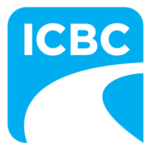
When Sarah noticed her 78-year-old mother struggling to remember her daily medications and becoming increasingly isolated after her father’s passing, she faced a crossroads that millions of Canadians encounter each year. Should she move her mother to a care facility, or could there be a way to help her maintain her independence while ensuring she receives the support she needs?
This is the challenging question that many families struggle to answer as their loved ones grow older.
According to Statistics Canada, over 81% of seniors express a strong preference to age in their own homes. Research shows that professional home care can reduce healthcare costs by up to 40% while significantly improving quality of life outcomes. As Canada’s healthcare system increasingly emphasizes aging-in-place initiatives, senior home care services have emerged as a vital bridge between independence and institutional care. This support helps preserve dignity, maintain family bonds, and honour the life your loved one has built at home.
Understanding Home Care Options in Canada
Home healthcare services are founded by principles distinct from institutional care. It focuses on personalized support that honours each senior’s individuality, preferences, and family connections rather than asking them to adjust to a facility’s routine.
Person-Centred Care Philosophy
At the heart of effective home care lies a person-centred philosophy that puts your loved one’s preferences at the core of all care decisions:
- Home care principles and individualized approach – Understanding medical needs, cultural preferences, family traditions, and personal routines
- Cultural and family preference accommodation – Honouring dietary requirements, religious practices, and family traditions
- Maintaining familiar surroundings and community connections – Preserving relationships with neighbours and community members
- Personal choice and autonomy in daily routines – Choosing when to wake up, what to eat, and how to spend their time
Comprehensive Support Services
Modern senior home care services encompass services designed to address both immediate needs and long-term wellness goals:
- Personal care assistance and daily living support – Help with bathing, dressing, grooming, and mobility support
- Medical care coordination and health monitoring – Tracking vital signs, managing medications, coordinating appointments
- Companionship and social engagement services – Meaningful interaction and support for activities that bring joy
- Household management and meal preparation assistance – Ensuring practical aspects of living remain manageable
Independence Preservation Strategies
Quality home care maintains your loved one’s independence through:
- Maintaining personal routines and lifestyle preferences – Supporting daily habits and schedules that provide comfort
- Adapting the home environment for safety and accessibility – Practical updates like grab bars and upgraded lighting
- Supporting meaningful activities and hobbies – Enabling fulfilling activities like gardening, reading, or crafts
- Facilitating ongoing family and social relationships – Coordinating visits and maintaining community connections
The Financial Case for Home Care
The home care benefits extend beyond cost savings, though financial advantages are substantial:
Cost Effectiveness
- Senior home care services typically cost 50-70% less than residential facility care
- Efficient, targeted services focus resources where they’re needed most
Quality of Life Outcomes
- Seniors at home experience less depression and maintain better cognitive function
- Families and seniors report higher satisfaction than with facility-based care.
Healthcare Savings
- Reduced hospital readmissions through professional monitoring
- Early identification of health concerns before they become emergencies
Home Care Implementation Process
Beginning home care starts with a comprehensive assessment to evaluate care needs and determine the suitability of the home environment. Professional assessors work with families to understand current challenges, identify safety concerns, and develop personalized care plans. Through family education, everyone gains clarity on their role, and quality checks help adjust care as your loved one’s needs shift.
Choosing the Right Home Care Solution
Selecting appropriate home care services requires consideration of multiple factors:
- Client health condition and care requirements – Understanding specific medical needs and cognitive status
- Home environment suitability and safety considerations – Evaluating living space and identifying necessary modifications
- Family support availability and caregiver involvement – Determining sustainable family contribution levels
- Service types needed and provider expertise – Matching requirements with experienced providers
- Budget constraints and funding source options – Combining private pay with government programs or insurance
- Geographic location and service accessibility – Understanding available local options
Care Team Expertise and Service Quality
When evaluating providers, look for these essential qualifications:
- Professional Qualifications
- Certified personal support workers and registered nurses
- Ongoing training in senior care best practice
- Background checks and proper licensing
- Service Reliability
- Flexible scheduling and emergency response protocols
- Backup caregiver systems for consistent service
- Communication and Coordination
- Regular updates and scheduled family meetings
- Clear protocols between families, caregivers, and healthcare providers
Ongoing Support and Care Evolution
Home care works best when it adapts to changes in life. Ongoing reviews ensure support continues to meet your loved one’s needs while fostering independence. Open communication makes transitions smoother, and family support and respite services provide comfort for those sharing in the care journey.
Why Choose Guarding Life for Your Home Care Needs
Home health care for seniors represents more than just an alternative to institutional care -it’s an investment in preserving the relationships, routines, and sense of home that give life meaning. At Guarding Life, we’re committed to providing the exceptional care your loved ones deserve.
- Personalized Care Plans – Comprehensive care plans to reflect your loved one’s specific needs and preferences
- Compassionate Caregivers – Rigorously trained professionals who prioritize respect, dignity, and genuine connection
- 24/7 Support – Round-the-clock availability with emergency response protocols for complete peace of mind
- Healthcare Coordination – Seamless integration with existing providers for medication management and appointments
- Flexible Services – Adaptable care that grows with changing needs without disrupting routines
- Family Partnership – Transparent communication ensuring families stay informed and involved in care decisions
Take the First Step Toward Peace of Mind
Ready to explore personalized home care solutions? Contact us today to schedule your free, no-obligation care consultation. Our experienced coordinators will assess your needs, discuss your goals, explain our services, and provide personalized recommendations. Contact us to book your free consultation today.
Don’t wait for a crisis – proactive planning ensures the best outcomes for your caregiving journey. Let Guarding Life create a care solution that honours independence while providing the support and peace of mind your family deserves.







